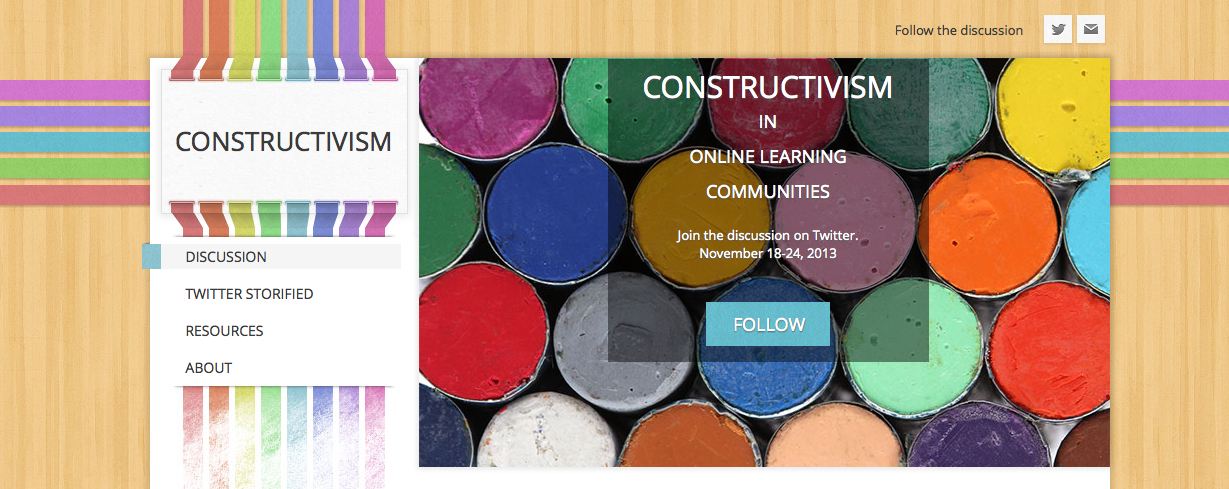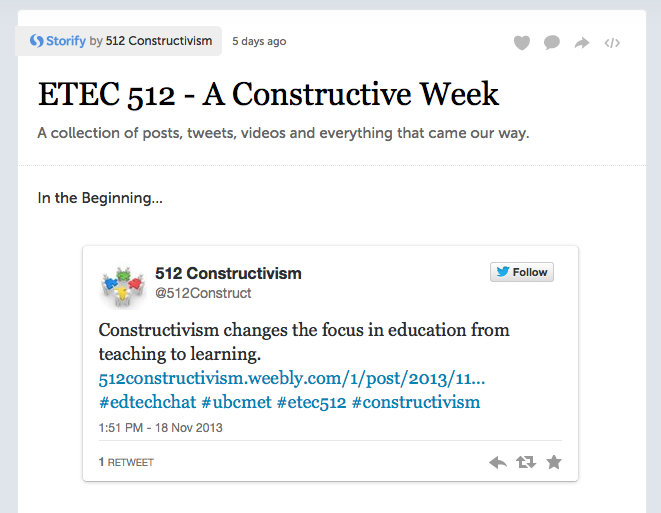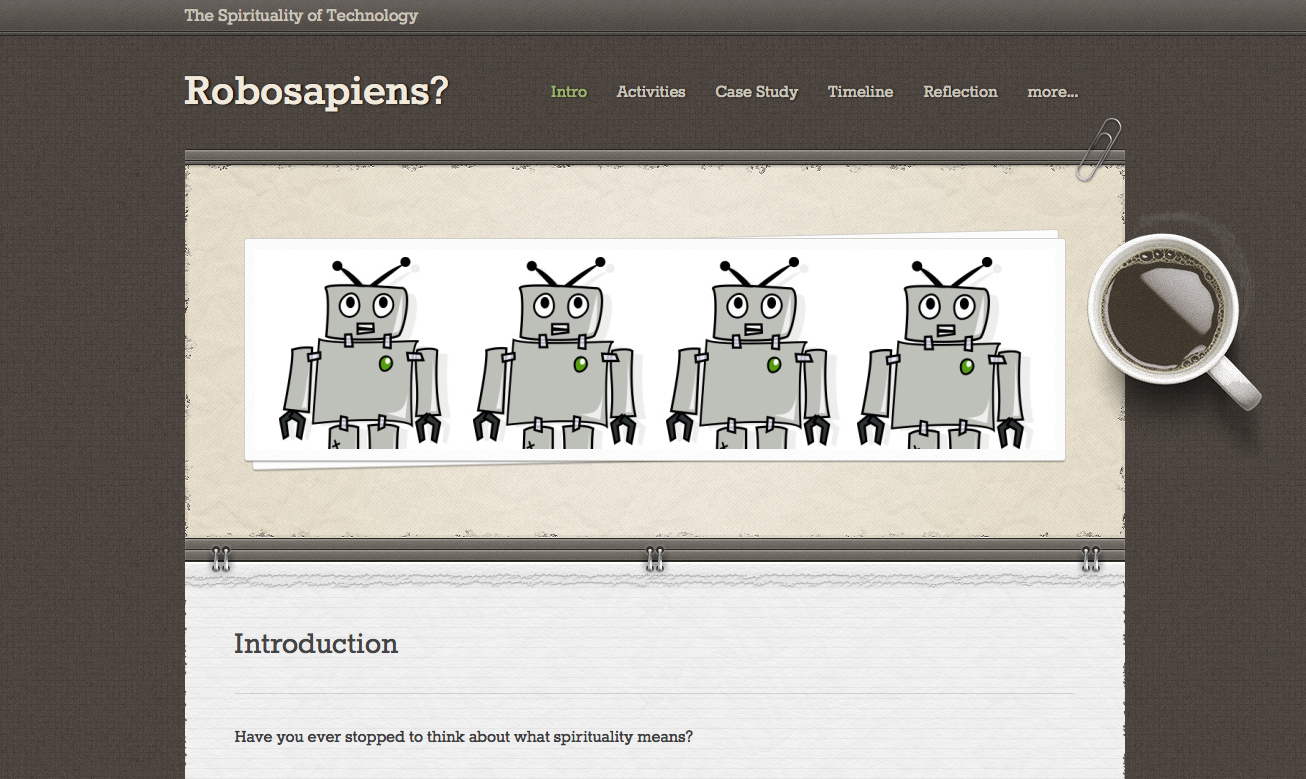Last week, as part of an online conference for a course on learning theories and their application to online learning environments (ETEC512), I co-hosted a conference on Twitter. There were three of us working on the presentation, and we thought a great deal about how we wanted to present the theory of constructivism as it related to online learning communities. We met several times on Google Hangouts to sift through all of our ideas and were undecided until I had a brainwave one morning while driving down the highway en route to picking up my children from school. I sent my classmates a voice memo as I was driving (multi-tasking is a mother’s forte) and we were off to the races.
 It was, without a doubt, one of the most rewarding group experiences I have had during this program to date. The level of collaboration, and the suggestions from the OLC that we tapped into on Twitter were so diverse! We had experience tweeters and newbies alongside each other, sharing good practice, and looking at constructivism from so many perspectives. The dialogue on both Twitter and through comments on the blog itself, allowed us to build a shared understanding of what constructivism in OLCs looks like in practice.
It was, without a doubt, one of the most rewarding group experiences I have had during this program to date. The level of collaboration, and the suggestions from the OLC that we tapped into on Twitter were so diverse! We had experience tweeters and newbies alongside each other, sharing good practice, and looking at constructivism from so many perspectives. The dialogue on both Twitter and through comments on the blog itself, allowed us to build a shared understanding of what constructivism in OLCs looks like in practice.
In the end, we were very pleased with the conference and I think we were able to achieve our goal. At the end of the week, we created two tools that I would like to share here.
Our Pinterest page, compiling all the resources shared throughout the week:
 The conference’s Twitter posts on Storify:
The conference’s Twitter posts on Storify:
 I am moderating a workshop at the moment, and we were discussing how to use process journals with students in a paperless environment. One of the participants remarked that, although she was certain there were plenty of options available to students today, she would need a lesson in how to set something up online for them to use. I suggested that we could also use the tools that we have available to us already, rather than complicating the situation. That is exactly what we did here – we were searching for a way to allow conference participants to contribute to a shared understanding of our topic, and trying to think of ways to do this online (blogs, discussion forums, google docs, Padlet, etc.)… but in the end, it worked so incredibly well to use something that is already a part of so many people’s lives. Why reinvent the wheel?
I am moderating a workshop at the moment, and we were discussing how to use process journals with students in a paperless environment. One of the participants remarked that, although she was certain there were plenty of options available to students today, she would need a lesson in how to set something up online for them to use. I suggested that we could also use the tools that we have available to us already, rather than complicating the situation. That is exactly what we did here – we were searching for a way to allow conference participants to contribute to a shared understanding of our topic, and trying to think of ways to do this online (blogs, discussion forums, google docs, Padlet, etc.)… but in the end, it worked so incredibly well to use something that is already a part of so many people’s lives. Why reinvent the wheel?


